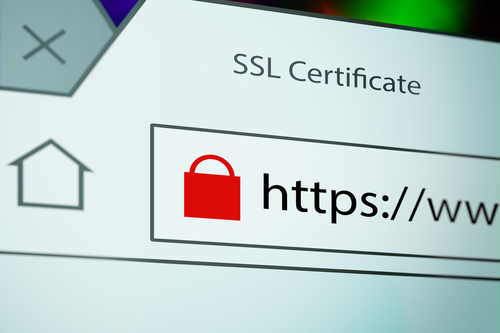Creating a safe and trusted environment is an important component of an online business where potential customers can feel very confident in making purchases. So what does SSL stand for?

Table of Contents
What Does SSL stand for
SSL stands for Secure Socket Layer, This is a vital technology that helps keep connections on the internet secure and also helps to safeguard sensitive data that is being passed between two systems, Thus preventing hackers or authorized users from getting access or modifying any information that is being transferred, This informations could be personal details, banks or confidential details.
These two systems could be a server and a client ( for example, an e-commerce website and browser or mail server to mail client) or server to server (for example, software with personally identifiable information like WhatsApp or a company payroll detail).
This technology is able to do this by ensuring that data transferred between users and sites, or between any two systems is impossible to read.
It scrambles data in transit using encryption algorithms to prevent hackers from reading it as it is being transferred over a secured connection. Institutions like banks, e-commerce sites, hospitals, Apple, Microsoft, small businesses, and every other person that needs privacy.
This information could be personal or sensitive data like credit card numbers, personal addresses, names, contacts, and other financial pieces of information.
WHAT IS AN SSL CERTIFICATE?

What is an SSL Certificate?
SSL certificates create an encrypted connection and establish trust.
SSL certificates develop a foundation of solid trust by helping establish a secure connection.
To assure users that their connection is secure and can be trusted, browsers provide visual indicators known as EV indicators that are displayed on the browser.
It could be a green, black, or any color of padlock to a branded URL bar.
When an SSL certificate is present on a site, the customers will see HTTPS:// before the web address instead of HTTP:// ( the “s” stand for “secure”).
Depending on the level of validation a certificate is given to the site, a green address bar or padlock icon can be displayed.
Google recommends that SSL should be used everywhere on the web and, from 2014, Google search engines started rewarding secured websites with improved web rankings, which is another reason why you should install SSL on your site.
How does an SSL certificate work?

In the most basic terms, when you install an SSL certificate on your server and a browser connects to it, having an SSL certificate installed triggers the SSL protocol, which will safely encrypt the data sent between the servers ( the server and browser): the details will be encrypted.
SSL operates above the transmission control protocol (TCP), effectively working as a safety cover that allows higher protocol layers to remain unchanged while it continues to provide a secure connection. So beneath the SSL layer, the other protocol layers are able to work as normal.
If an SSL certificate is used properly, all the data a hacker will see will be which IP and port are linked and an estimate of the amount of data being transferred.
They may be able to cut the connection but the server and user will know that it was done by a third party. However, will not be able to access any of the data being transferred.
The hacker might be able to find out the hostname that the user is connected to but not the rest of the URL. Because the connection is encrypted, the important information will still be secure.
How SSL Certificate Works
- When TCP connection is established, SSL will start to work, initiating SSL handshake.
- The server forwards it certificate along with a number of specifications (stuffss like version of SSL?TLS and the encryption methods to use, etc) to the user.
- The user then verifies the validity of the certificate and selects the most secured level of encryption that can work for both parties and restart a new connection session using these methods. The are different sets of methods available with various range of strengths – This is known as cipher suites.
- To ensure the integrity and authencity of every data transferred, TLS and SSL protocols are included in the authentication process using message authentication codes (MAC).
Why Do We Need an SSL Certificate?
SSL is one of the foundations of a secure and trusted internet connection. It helps protect information and it is very vital in providing protection for your website, even if your site does not handle sensitive pieces of information like credit cards or other personal or confidential information.
SSL certificates are also used for the secure sharing of files and email. An SSL certificate provides trust by ensuring that the is data integrity, privacy, and, critical security.
Are SSL Certificates Necessary?
If your website or blog collects any personal information from users then an SSL certificate is necessary.
Search engines rank sites with secured connections above those with security lapses. That means that SSL is used as a ranking factor by Google.
How Much Does an SSL Certificate Cost?
Web Hosting companies like HarmonWeb offer free SSL certificates to their users, but you can get SSL certificates very cheap, but then your choice of SSL will depend on the type of website you manage. Big financial institutions will pay a lot more money than a blog.
How Do You Get an SSL Certificate?
- Choose a Certificate Issuer
- Buy and verify the SSL certificate
- Download the SSL certificate files
- Install the SSL certificate
- Validate your SSL certificate
- Confirm that the SSL certificate is working
What Are the Benefits of SSL?
The benefits of SSL as the name – Secure Socket Layer – as the name imply is to provide an additional layer of security.
- It protects your data
- It affirms your identity
- It improve your better search engine ranking
- It is required for PCI/DSS (Payment Card Industry Data Security Standard) compliance
- It improves your customer trust
Conclusion
SSL is a very important security requirement for websites and businesses, it plays an increasing role in the success of transactions online. Getting an SSL certificate is not that complicated to buy and install on your site. Many SSL providers have customer support to help along.
An HTTPS:// pre-x and padlock icon are just a few clicks away and can have a big impact on business; increasing sales, building consumer confidence, and improving your website rankings all with one industry standard certificate.
[wpforms id=”498″ title=”false”]





Pingback: How to Fix the Mixed Content Error in WordPress | Harmon Web Blog